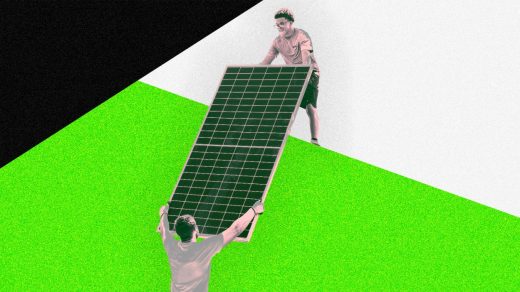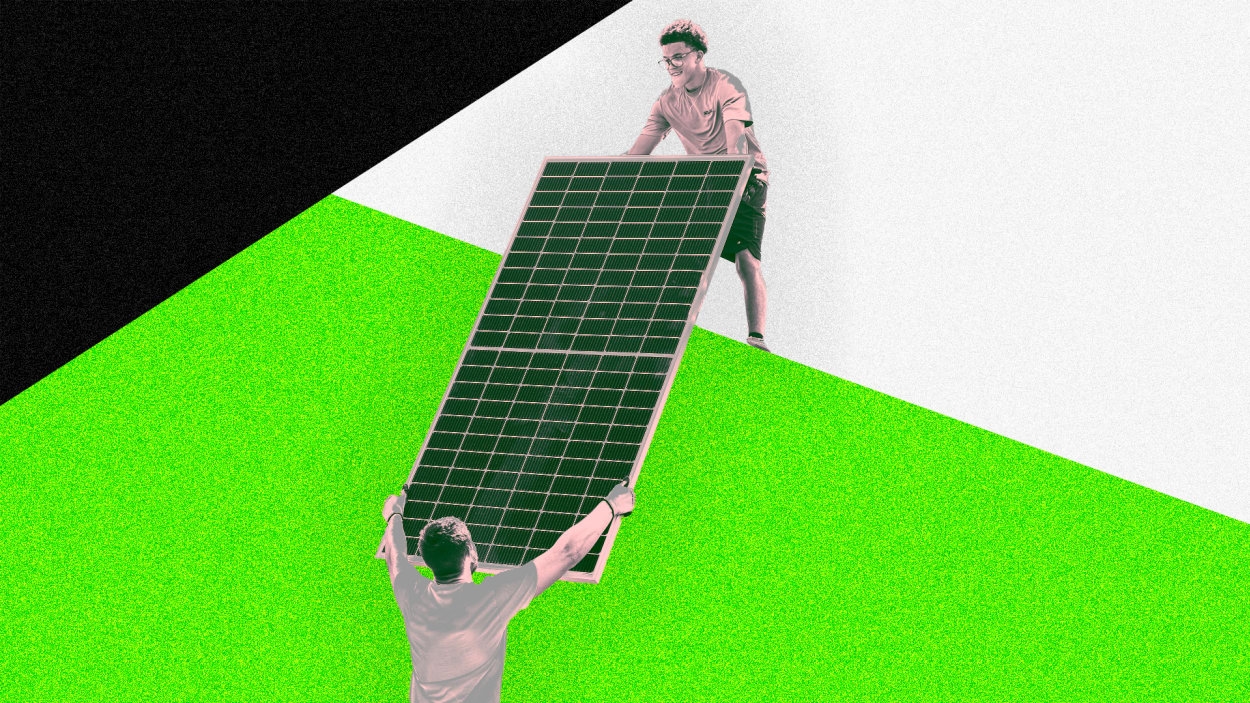Why Alex Honnold of ‘Free Solo’ fame is funding solar power in New Orleans neighborhoods
In the aftermath of 2021’s Hurricane Ida, the most devastating hurricane in Louisiana after Katrina, power disappeared from New Orleans. All eight transmission lines went down, leaving more than a million in Southeastern Louisiana without power, all in extreme heat; in some outer regions of the city, it wasn’t restored for nearly a month. This hurricane highlighted the fragility of energy supply during crises, especially for the most marginalized.
Better protecting the low-income communities of New Orleans during storms will be a new priority for the Honnold Foundation, a charity established by rock climber Alex Honnold. He’s best known as the first person to scale the sheer face of Yosemite’s El Capitan without any harnesses, which was documented in the Oscar-winning film Free Solo. His organization focuses on expanding solar energy in overlooked corners around the world. Now, with a donation from Salesforce, the foundation will provide minority-owned New Orleans restaurants with solar power so they can be turned into community hubs during hurricane recovery.
The Honnold Foundation was founded in 2012, more broadly to solve a wealth of environmental issues, but the team kept coming back to solar in particular. “A lot of that just stems from my personal feeling that energy access is one of those fundamental basic human needs,” says Honnold, who had just returned from a climbing expedition in Greenland. Almost a billion people in the world lack power; about half the population of the world’s least developed countries don’t have electricity. “From a development perspective, I feel like access to energy is where you can really start to join the modern world,” he says.
We may think of solar as a way for wealthy people to save on their energy bills, but it’s also a way for the poorest to get access to power in places where the grid won’t go. “It will never be economical to rig power lines across thousands of miles of Africa,” Honnold says.
Solar decarbonizes the grid, yet also provides humanitarian benefits. If you’re doing it just for sustainability reasons, he says, it would be cheaper to simply plow over fields and plant panels. “That’s helping shareholders and some utility,” he says. “That’s not helping actual communities.”
Instead, the foundation has focused on solar access in the developing world; in the last 10 years, it has given grants to 44 partners in 20 countries, territories, and tribal lands, many of which also provide side benefits like expanding clean water, healthcare, and internet access. It has supplied energy for Indigenous schools in Guatemala, for home lighting in Malawi and Ethiopia, and for canoes for Ecuador’s Achuar people, which has helped connect communities and conserve rain forest habitats.
Though not in a developing nation, Honnold’s new U.S. project will help disadvantaged communities. Specifically, it will partner with Feed the Second Line, a New Orleans nonprofit that creates a safety net to support the city’s distinctive cultural workers: its Second Line musicians, Mardi Gras Indians, and Baby Dolls who bring joy to residents and tourists but are underpaid for their work. It started in the height of the pandemic, when the group bought groceries for older workers to reduce their exposure risk, and sought gig work to tide artists over. During Hurricane Ida, the charity delivered ice, coolers, and meals to the elders they serve and fixed 150 roofs around the city.
But as Ida showed, power is a priority during disasters. Via its new “Get Lit, Stay Lit” program, Feed the Second Line aims to solar-power three minority-owned restaurants in the Crescent City. It will fit rooftop solar panels on the eateries and provide batteries. It has already started with Queen Trini Lisa in Midcity, and two others will follow, including a Jamaican restaurant in Gentilly called Afrodisiac.
Those solar microgrids would power refrigerators, charging stations, and cooling stations, so residents in low-income, predominantly Black neighborhoods who’ve lost power have access to food, ice, and chargers. They’d essentially become mutual aid societies, where people can come together and share information to help recovery. Restaurants would be the “first first responders,” the charity said in its grant application, all with the added benefit of clean energy.
It’s an urgent program. Hurricane season is approaching, with 18 named storms forecast for the Gulf area. Though that’s down from an earlier projection, storm seasons will continue as climate change worsens. The idea is that solar panels would hold out against hurricanes better, as they are typically thought to withstand winds of up to 140 miles per hour–though Ida sustained winds at 150, and reached high levels of 168. Still, panels proved to stand stronger than traditional electricity lines in both Ida and Puerto Rico’s María, even though they did lose some of their capacity.
The organization needs funding to do it, which is where the Honnold Foundation and its backers come in. From about 2,000 applications from 100 countries, the foundation vets and selects 15 to 20 projects each year that are dedicated to both improving solar access and increasing social and economic equity for specific under-served communities. This year, it will give $2 million in grants to about 20 projects. “There’s a tremendous pipeline of good ideas like this, and we’d love to see them all get get executed in some way,” Honnold says.
To help achieve the New Orleans plan, cloud-based software company Salesforce is donating $100,000 to fund the pilot with the three restaurants. “[Feed the Second Line] is just such a great example of an organization that’s doing real community work using solar,” says Naomi Morenzoni, Salesforce’s vice president of philanthropy strategy. It’s part of Salesforce’s $100 million fund for ecosystem restoration and climate justice; if the project is successful, there’s the potential to expand with more grants.
Morenzoni says Honnold’s “trust-based” philanthropic approach was a key draw for Salesforce, as the foundation gives beneficiaries the autonomy to use the grants as they see fit in their communities, rather than prescribing how they should be employed in a paternalistic manner. “Unrestricted funding is the holy grail of grant-making,” she says. “Rather than having the grantees jump through a ton of hoops.”
For Honnold, that mentality links back to his day job on the towering cliffs and crags, where faith in others is literally a matter of life or death. “You only climb with people you trust, and then you trust them with your life,” he says. He loves to see the communities empowered. “If you don’t trust them, then don’t work with them,” he says. “And if you do trust them, then just trust them absolutely.”
(31)



